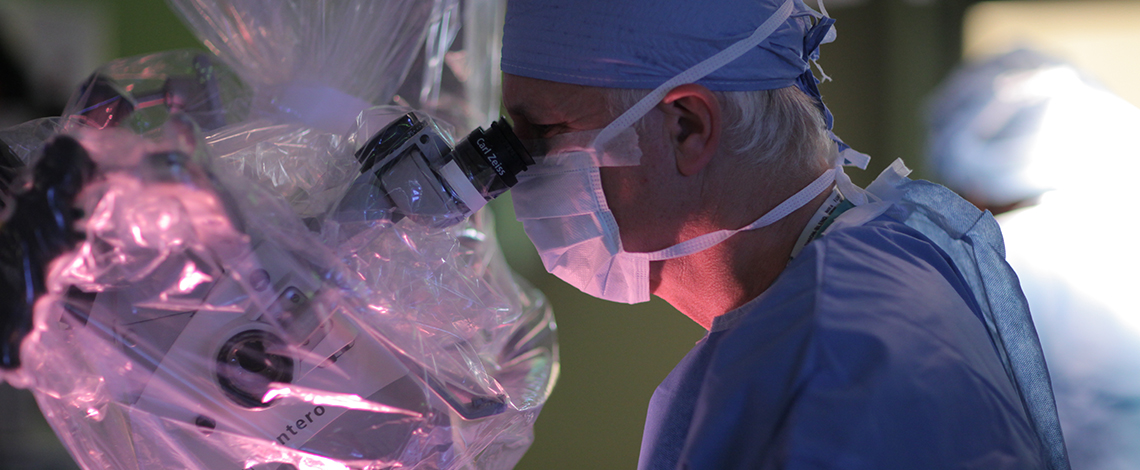
A leader in high-tech computerized diagnostic and treatment methods, Weill Cornell Medicine Neurological Surgery receives patients from around the world. Our specialists treat the full spectrum of neurological disease, from brain and spine tumors, stroke, aneurysms, and epilepsy to Parkinson's disease and other movement disorders. (See our DIRECTORY for a complete list of our doctors, residents, and advanced practice providers (NPs, PAs, and RNs.) At the forefront of emerging technology, our facilities offer the Gamma Knife, stereotactic radiosurgery, frameless stereotaxy, endoscopic surgery, and three-dimensional visualization in the operating room. Many of our patient cases have been covered in the news documenting the success of minimal-access surgery; recent articles told of spinal surgery to prevent paralysis and a giant brain tumor removed through the nasal cavity. (Find out more about our Surgical Services and Surgical Programs.)
Our services don't end after surgery: We have on-staff neuropsychologists who offer testing and treatments for emotional and cognitive issues that may occur after a brain disorder. (Find out more about our Cognitive Remediation Program.)
View or download our department brochure: ![]() Advanced, Compassionate Care for Disorders of the Brain and Spine
Advanced, Compassionate Care for Disorders of the Brain and Spine
Pioneers in the Laboratory
In addition to their clinical work, our neurosurgeons actively pursue new frontiers in research. Advancements include the first gene therapy treatment for Parkinson's; the successful isolation of "human stem cells" from the human brain, both normal and brain tumor-derived; computer mapping of the brain to cure epilepsy through surgery; a cure for one type of eye cancer using tiny catheters; and a cutting-edge approach to treating pediatric hydrocephalus (water on the brain) that eliminates the need for shunts, sparing children from unnecessary infections. (Visit our neurosurgery academic web site to read more about our Laboratory Research.)
Bridging the distance from the lab bench to the patient bedside, clinical trials are underway for stroke, aneurysms, spinal fusion, and resistant brain tumors. On the horizon: deep brain stimulation for depression and a biological alternative to mechanical spinal disc replacement. (Read more about our Clinical Trials on our academic web site.)
Training the Next Generation
As educators, our staff teaches medical students, residents, and fellows, nationally and abroad. They also design and present specialized training courses in skull base surgery, endonasal surgery, cutting edge pediatric surgery, and minimally invasive approaches to spine surgery. (Find out about our Continuing Medical Education courses, residency program, and fellowships on our neurosurgery academic web site.)